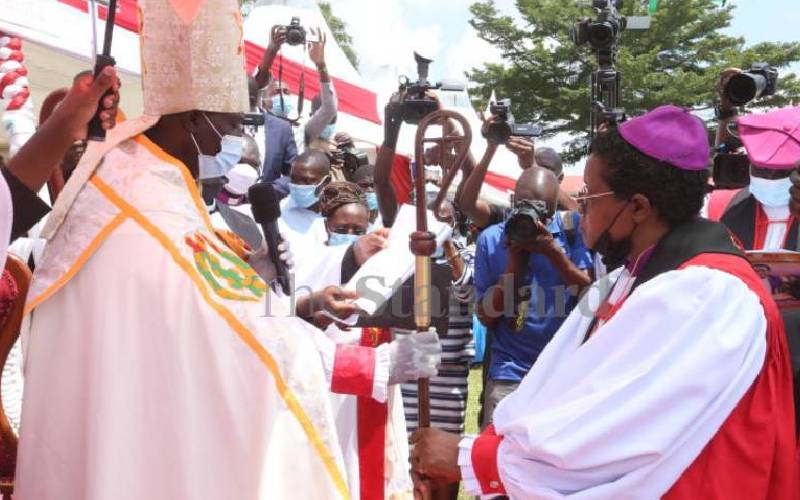×
The Standard e-Paper
Smart Minds Choose Us

Bishop Rose Okeno holding the pastoral staff. Left, Archbishop Jackson ole Sapit. [Benjamin Sakwa, Standard]
No contemporary work names the fullness of women and their right to dignity than Rev Dr Timothy Njoya’s Divinity of the Clitoris. Shallow respondent will judge the book by the cover literally and dismiss it as explicit. But those whose curiosity moves them to turn the pages seeking understanding realise that the book is a voice crying, rejecting the minimisation of women.